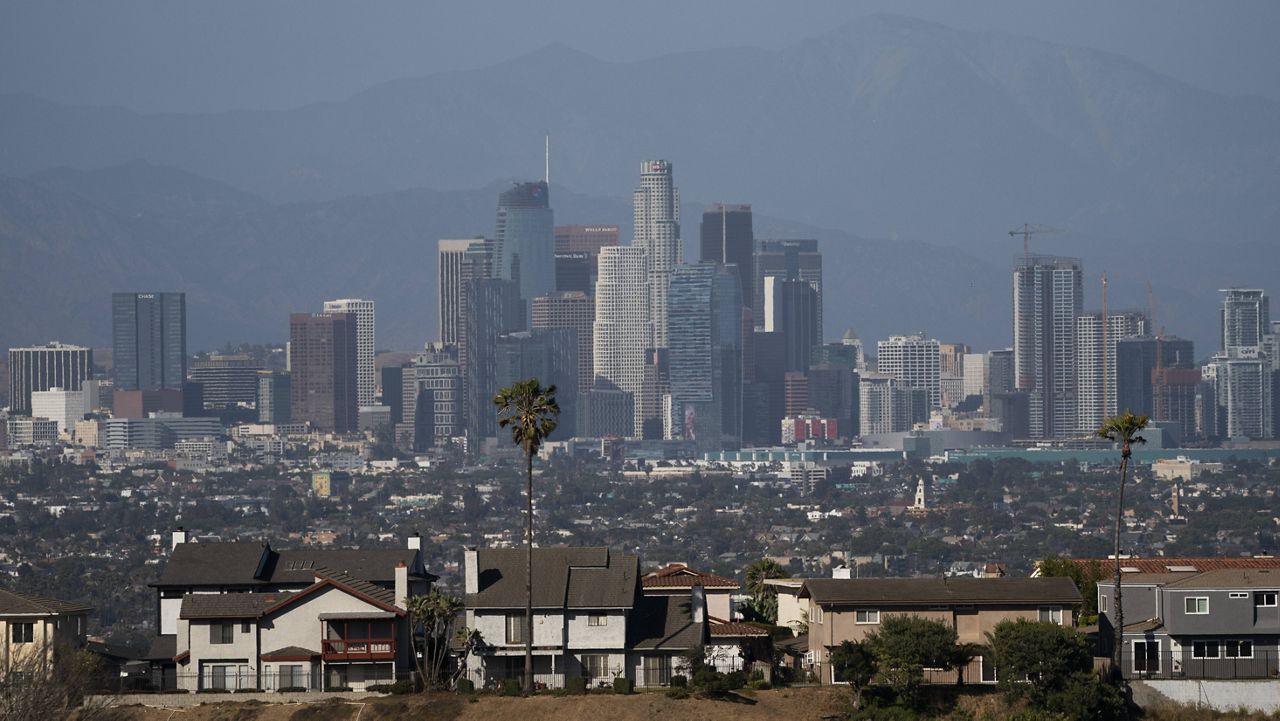LOS ANGELES (CNS) — A federal appeals court panel Wednesday upheld the city of Los Angeles' COVID-19 eviction moratorium, rejecting an effort by Southern California's largest landlord organization to reverse the restriction.
What You Need To Know
- The Apartment Association of Greater LA sued the city on June 11, 2020, challenging the eviction ban, prohibitions on late fees and interest on unpaid rent and moratorium on annual rent increases
- U.S. District Judge Dean D. Pregerson in November issued an order keeping in place the citywide ordinances designed to protect tenants during the public health crisis
- AAGLA, which consists of 55,000 rental property owners and managers, appealed the decision in December
- Judge Daniel Aaron Bress said "the moratorium's provisions were likely `reasonable' and `appropriate' given the circumstances of the COVID-19 pandemic"
The Apartment Association of Greater Los Angeles sued the city on June 11, 2020, challenging the eviction ban, prohibitions on late fees and interest on unpaid rent and moratorium on annual rent increases.
U.S. District Judge Dean D. Pregerson in November issued an order keeping in place the citywide ordinances designed to protect tenants during the public health crisis. AAGLA, which consists of 55,000 rental property owners and managers, appealed the decision in December.
A three-judge panel of the 9th U.S. Circuit Court of Appeals on Wednesday upheld Pregerson's decision.
Writing for the panel, Judge Daniel Aaron Bress said "the moratorium's provisions were likely 'reasonable' and 'appropriate' given the circumstances of the COVID-19 pandemic."
He added that there was "no apparent basis" to find the moratorium violates the U.S. Constitution's Contracts Clause, as alleged by the landlord association. The clause establishes that "No State shall pass any ... law impairing the Obligation of Contracts."
The ruling was hailed by Public Counsel, which represented the Alliance for Californians for Community Empowerment Action and Strategic Actions for a Just Economy as intervenors in the case.
"Today's decision from the 9th Circuit rightly defers to the city of Los Angeles on how to best protect its tenants, with ordinances that have prevented thousands of people from becoming homeless during the pandemic," Faizah Malik, senior staff attorney with Public Counsel, said in a statement. "We cannot deny the importance of housing in service of our public health goals and will continue to fight to help keep Angelenos stably housed and back on their feet with rental assistance."
AAGLA's Executive Director Daniel Yukelson told City News Service the association is prepared to take the case all the way to the U.S. Supreme Court.
"I understand that some of the justices of the Supreme Court are interested in hearing a Contracts Clause case and this one would be the right case for them to hear," he said.
Bress wrote in the ruling that the city "fairly tied the moratorium to its stated goal of preventing displacement from homes, which the city reasonably explained could exacerbate the public health-related problems stemming from the COVID-19 pandemic. In turn, each of the provisions of the eviction moratorium that plaintiff challenged could be viewed as reasonable attempts to address that valid public purpose."
According to tenants' rights organizations, AAGLA's lawsuit sought to void the city's eviction protection and rent freeze ordinances, thereby allowing its members to engage in mass evictions during the pandemic.
Los Angeles County and California eviction moratoriums are set to expire Sept. 30, but the city's moratorium is tied to its "Local Emergency Period." The moratorium protects tenants with unpaid rent due to COVID-19 until Aug. 1, 2022. No-fault evictions, such as for owner occupancy, are prohibited during the Local Emergency Period.
To assist renters and landlords who lost income during the pandemic, the city has committed $235 million and the state has committed more than $5 billion to pay off tenants' owed rent directly to landlords. Gov. Gavin Newsom said in July that it was enough to pay 100% of the owed rent from April 2020 through September 2021.
In the court's opinion, Bress noted the rental assistance program, as well as availability of payment plans for utilities and penalty waivers for property taxes provided by government agencies, including within Los Angeles, during the pandemic to ease the burden on landlords.
"Although the interaction between these various programs is a matter of some complexity, the availability of such relief, while not dispositive, remains relevant in assessing the overall reasonableness of the City's actions," Bress wrote.
The toll of the COVID-19 crisis has weighed most heavily on low-income tenants of color who make up ACCE Action and SAJE's membership base, Edna Monroy, director of organizing for SAJE, said last year.
"Without eviction protections, hundreds of thousands of families are at risk of being displaced," Monroy said. "The current protections are the hard-fought results of persistent organizing and have delayed an even worse crisis. Evicting families while we are in the midst of another wave of the pandemic and during an ongoing housing and homelessness crisis would be a humanitarian disaster."



